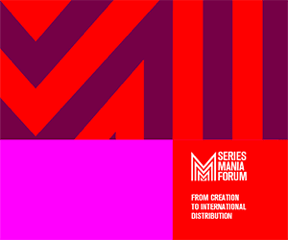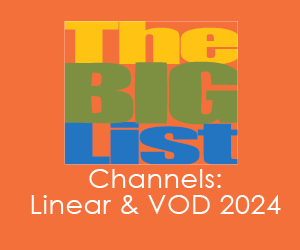
Moonbug Entertainment is gathering all the pulling power of “CoComelon”, “Blippi” and “Little Baby Bum” in a 24/7 linear channel custom-built for platforms in Asia. The company’s EMEA and APAC managing director, Nicolas Eglau, talks about leveraging a powerful existing fan base to drive a “modern digital-first destination” for kids and families across the region and unlock value for platform partners.
How big is the Moonbug business and where have you seen success in Asia?
“Moonbug began in 2018 and in less than three years, it has become one of the largest digital media companies in the world. Our portfolio of premium programming includes some of the biggest kids’ franchises, including CoComelon, Blippi and Little Baby Bum, and represents 550+ hours of content and is distributed on 100+ platforms worldwide. Our YouTube network alone consists of over 235 million subscribers. We also take pride in ensuring accessibility for our global audience and have made our content available in up to 27 languages.
In September 2020, we expanded our reach to China via a partnership with Tencent Video and in March of this year, we forged partnerships with iQiyi and ByteDance/Xigua Video to bring CoComelon to the market. Alibaba’s streaming service, Youku, followed in April, making CoComelon one of their top kids franchises.
We’ve had a tremendous amount of success with content across AVOD and SVOD, and are excited about the opportunities for us to continue to expand in the linear space as well across Asia.”
Where do you think the opportunity is for Moonbug in Asia? And why now?
“While SVOD and AVOD have served us well, we see opportunity for us both with pay TV and continuing to expand to other forms of brand absorption, like music/audio and consumer products.
Large studios are pulling content behind their walled gardens and Moonbug is taking this space from now on. Linear and VOD channels offer us the ability to drive continued retention and engagement with our fan base in APAC. We’ve formed strategic partnerships in Europe with powerhouses like the BBC, RTL Group and Sky, and we see there’s similar potential within Asia. We are also big believers in local content a...
Moonbug Entertainment is gathering all the pulling power of “CoComelon”, “Blippi” and “Little Baby Bum” in a 24/7 linear channel custom-built for platforms in Asia. The company’s EMEA and APAC managing director, Nicolas Eglau, talks about leveraging a powerful existing fan base to drive a “modern digital-first destination” for kids and families across the region and unlock value for platform partners.
How big is the Moonbug business and where have you seen success in Asia?
“Moonbug began in 2018 and in less than three years, it has become one of the largest digital media companies in the world. Our portfolio of premium programming includes some of the biggest kids’ franchises, including CoComelon, Blippi and Little Baby Bum, and represents 550+ hours of content and is distributed on 100+ platforms worldwide. Our YouTube network alone consists of over 235 million subscribers. We also take pride in ensuring accessibility for our global audience and have made our content available in up to 27 languages.
In September 2020, we expanded our reach to China via a partnership with Tencent Video and in March of this year, we forged partnerships with iQiyi and ByteDance/Xigua Video to bring CoComelon to the market. Alibaba’s streaming service, Youku, followed in April, making CoComelon one of their top kids franchises.
We’ve had a tremendous amount of success with content across AVOD and SVOD, and are excited about the opportunities for us to continue to expand in the linear space as well across Asia.”
Where do you think the opportunity is for Moonbug in Asia? And why now?
“While SVOD and AVOD have served us well, we see opportunity for us both with pay TV and continuing to expand to other forms of brand absorption, like music/audio and consumer products.
Large studios are pulling content behind their walled gardens and Moonbug is taking this space from now on. Linear and VOD channels offer us the ability to drive continued retention and engagement with our fan base in APAC. We’ve formed strategic partnerships in Europe with powerhouses like the BBC, RTL Group and Sky, and we see there’s similar potential within Asia. We are also big believers in local content and will actively be working with local content creators and studios on co-productions.”
What content resources will back a 24/7 linear Moonbug Kids channel?
“Our linear Moonbug Kids channel will be based on all of Moonbug’s blockbuster shows, such as CoComelon, Blippi or Little Baby Bum. In total we aim to schedule more than 20 top brands and 200+ hours of live-action and animation content with monthly refresh. We are seeing our channel as a modern digital-first destination for kids and families across the APAC region. We have a huge fan base already that can look forward to such a new linear Moonbug Kids channel.”
When are you planning to launch the linear service in Asia?
“We are in discussions with a number of platforms across the region as they plan their strategy for the second half of the year and we expect that we should have a few announcements in Q3.”
How will the linear channel sit alongside the content licensing deals you have done in Asia with global platforms?
“Only a handful of our franchises sit on global streaming platforms in the region. That said, we’ve seen data dictating content deals. Some content drives acquisition, other content drives engagement and retention. We know from our data the engagement and retention metrics for our content are high and we can unlock a lot of value for platform partners.”
Do you have your own app or standalone streaming platform for Moonbug or any of the individual properties?
“We don’t and that’s not our intention because a key focus for us is accessibility. While there may be exclusive content opportunities with particular platforms, we want to ensure that our premium brands can be watched and listened to anywhere – and, enjoyed in the local language. From a platform perspective, we are and will remain partners of platforms and channels, and don’t want them to feel as if we’re fragmenting their audiences.”
Sponsored content. Published in ContentAsia eNewsletter 12 July 2021 issue






















